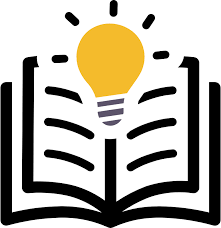
 Psychological Facts
Psychological Facts
Psychological facts
- Conflict is a normal and natural part of human interaction, and it can be a catalyst for personal and interpersonal growth and change.
- Individuals have unique and varied responses to conflict, and understanding your own style can help you better manage conflicts.
- Emotions play a crucial role in conflict management, and recognizing and regulating your emotions is a key part of effective conflict resolution.
- Conflict often arises from miscommunication or misunderstandings, and improving communication skills can help prevent and manage conflicts.
- A lack of trust or a breakdown in trust can contribute to conflicts, and building trust is an important aspect of effective conflict management.
- Cognitive biases and distorted thinking patterns can contribute to conflicts, and being aware of these patterns and challenging them can help prevent and resolve conflicts.
- Conflict can have a significant impact on mental health and well-being, and prioritizing self-care and seeking support can be important when managing conflicts.
- Conflict resolution often involves compromise and finding common ground, which can lead to better understanding and stronger relationships.
- The ability to effectively manage conflicts can lead to improved communication, increased creativity, and more productive and positive relationships.
Individual Activities
Here are a few individual activities that can help readers practice about conflict management :
Self-reflection: Ask readers to reflect on their own conflict management style and identify their strengths and weaknesses. Encourage them to consider situations where they have successfully managed conflicts and areas where they need to improve.
Mindfulness practice: Encourage readers to practice mindfulness meditation to help them become more aware of their thoughts and emotions in a conflict situation. This can help them stay calm and focused during conflict resolution.
Reading and research: Encourage readers to read books and articles on conflict management and resolution to gain a deeper understanding of the topic. This can help them develop new strategies and techniques for managing conflicts.
Journaling: Encourage readers to keep a journal to record their experiences with conflicts and how they have managed them. This can help them identify patterns in their behaviour and develop new strategies for managing conflicts.
Visualization: Encourage readers to visualize different conflict situations and imagine themselves successfully managing the conflict. This can help them build their confidence and develop new strategies for managing conflicts.
Self-assessment: Encourage readers to take a self-assessment quiz to identify their conflict management style and areas for improvement. This can help them develop a customized learning plan to improve their conflict management skills.
Goal setting: Encourage readers to set goals for themselves to improve their conflict management skills. This can help them stay motivated and focused on developing new strategies for managing conflicts. Create a script for conflict management 2 mins video.
Group Activities
Here are a few group activities that can help readers practice about conflict management :
Role-playing: Create scenarios in which individuals have conflicts and ask participants to play different roles. This will help them understand the different perspectives in a conflict and how different people may react to situations.
Case studies: Provide case studies of different conflicts and ask participants to identify the underlying issues, interests, and emotions. Encourage them to analyse the situation and come up with effective conflict management strategies.
Group discussions: Organize group discussions around different conflicts and encourage participants to share their experiences and strategies for dealing with them. This can help them learn from each other's experiences and develop new techniques for managing conflicts.
Mind-mapping: Use mind-mapping techniques to visualize different conflict management strategies and how they are interconnected. This can help participants better understand the complex relationships between different conflict management techniques.
Simulation games: Use conflict resolution games and simulations to help participants practice different conflict management strategies. This can help them develop their skills in a safe and non-threatening environment.
Active listening exercises: Develop exercises to help participants practice active listening and empathizing with others. This can help them improve their communication skills and understand different perspectives in a conflict.
Reflective writing: Encourage participants to write reflective essays on their experiences with conflicts and the strategies they have used to manage them. This can help them develop a deeper understanding of their own conflict management style and how they can improve their skills.